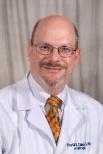The Clinical and Translational Science Institute has reorganized itself to broaden the range of expertise among the institute’s top leadership.
Karl Kieburtz, M.D., M.P.H., senior associate dean for clinical research at the School of Medicine and Dentistry, who has served as director of the CTSI since October 2013, has been joined by Nancy M. Bennett, M.D, M.S,., and Martin S. Zand, M.D., Ph.D., and the trio are serving as the Institute’s co-directors.
The leadership change became effective on January 1.
“Karl has enormous experience in clinical trials, Nana brings her community perspective and population health expertise, and Martin brings informatics and data science, as well as a basic science background,” said Stephen Dewhurst, Ph.D., vice dean for research at the School of Medicine and Dentistry. “So they have different clinical interests, research interests and expertise, and put together, they make an extraordinarily broad and effective leadership group.”
This team approach is becoming increasingly common within the Clinical and Translational Science Award network. In Rochester, the diverse skill sets of the three co-directors allows for CTSI leadership to encompass the research spectrum, starting with basic science discovery and continuing through clinical trials and implementation on the population level.
“It really does bridge the molecules to populations theme that we’re trying to express. And the truth is, no single person can bridge all that — it has to be a transdisciplinary, multidisciplinary effort,” said Kieburtz. “So we’re doing it the leadership level, and showing that you can lead an institute effectively with a team.”
For the past year, Bennett served as a CTSI co-director alongside Kieburtz and Harriet Kitzman, Ph.D., but in a more limited capacity. Now her role comes with increasing importance, as the CTSI recently placed a renewed emphasis on improving the health of the population as a whole.
“As we try to accentuate the theme of population health in the CTSI, the new leadership structure will make it much easier for me to contribute in a meaningful way,” said Bennett.
Zand, meanwhile, brings informatics expertise, paramount when it comes to analyzing the big data needed for impactful research into population health.
“We want to use data science to identify questions that we’re not asking and identify data we don’t yet have. This will allow us to be in that space of discovery,” said Zand. “That way, we can translate data into real clinical and community interventions that improve the health of a population as a whole.”
The new structure also fosters an environment that will allow the CTSI to more easily integrate with several other centers within the university. Kieburtz also has strong ties to the Center for Human Experimental Therapeutics, Bennett heads the Center for Community Health, and Zand is the director of the Rochester Center for Health Informatics and co-director of the Center for Biodefense Immune Modeling.
In terms of operations, Kieburtz will remain the CTSI’s liaison to university leadership and to the National Center for Advancing Translational Sciences (NCATS), while Bennett will be the main interface with the community through the Center for Community Health, and focus on overall CTSI strategy and developing the population health science theme for the CTSI.
Zand will take on integrating informatics activities throughout the Medical Center and the newly created Institute for Data Science, have responsibility for the CTSI’s day-to-day operations, and will lead the grant-writing process when NCATS releases its call for renewal applications.



